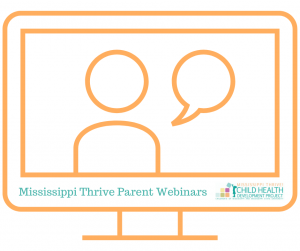Parents & Families
You play a vital role in your child’s early development.
Did you know a child’s brain grows fastest in their first five years? What a great time to learn! And the best part is, you get to be their teacher! To help parents and other family members raise healthy and happy children, we’ve provided the following resources to offer encouragement and inspire confidence. You have what it takes to help your children thrive, and we have the tools.
Parents & Families
Early years are the most important ones.
A responsive and caring relationship with at least one adult is key in the first few years of life, because it’s when important skills form that will be used later in life—memory retention, self-control, attention span, focus, and more. Nothing strengthens these skills better than interactions with moms, dads, and other family members. Here are some everyday ways you can help your child’s brain grow up strong.

4 ways you can make a difference
Easy, fun ways to help your child thrive.
Marking Milestones
Mark milestones like first steps and first words as your child grows. Knowing the expected developmental milestones for each age helps your family celebrate exciting moments while charting their progress.
Building Brains
Be a brain builder by turning everyday activities like eating meals or getting dressed into moments that help brains grow. Here are some free tips and ideas to help.
Talking, Reading, Singing
Talk, read, and sing to your baby. It develops communication skills by helping them connect to the people, places, and things around them. Find simple conversation starters and read 10 tips to help your child fall in love with reading.
Positive Interaction
Focus on having positive back-and-forth interactions with children to help them develop the social-emotional skills needed as they grow. There are ways you can even turn challenging behaviors into positive interactions. Check them out here.
Parents & Families
Your child’s health care provider is a great resource.
Next time your child goes in for a regular checkup, ask about milestones and developmental questionnaires. Here are some ideas on what you could discuss with your child’s doctor or nurse practitioner at 9, 18, and 30-month visits. You can also sign up for text reminders that help you stay on track.

Sign up for The Well Visit Planner®!
The Well Visit Planner® is a free, online, planning tool that can support your child’s development. It can help parents/caregivers “learn about child development, reflect on their strengths, needs and priorities, and plan for upcoming well visits for their child/children.”
There are lots of great supports available.
As a parent, it’s natural to worry about your child’s development, but nearly 1 in 6 children experience delays regardless of what you do or don’t do. And even if delays are found, there are many opportunities to support your child’s development. Don’t hesitate to speak with your child’s health care provider, like their doctor or nurse practitioner, if you have questions or need guidance on what steps to take.
- Center for the Advancement of Youth
- First Steps Early Intervention program (if your child is younger than 3)
- Child Find (if your child is older than 3) - Call local school district to connect with their Child Find contact
- Mississippi Parent Training and Information Center
- Mississippi Family-to-Family Health Information and Education
- Mississippi Early Childhood Inclusion Center
- Help Me Grow hotline 1-800-241-KIDS (5437)
- My Child Without Limits
- Mississippi Families for Kids’ Help Me Grow program provides free questionnaires to check children’s development! ASQ-3 (Developmental Screening)
- ASQ:SE-2 (Social & Emotional Developmental Screening)
- Mississippi Families as Allies
Use our interactive county resource maps to find early child development resources near you.


